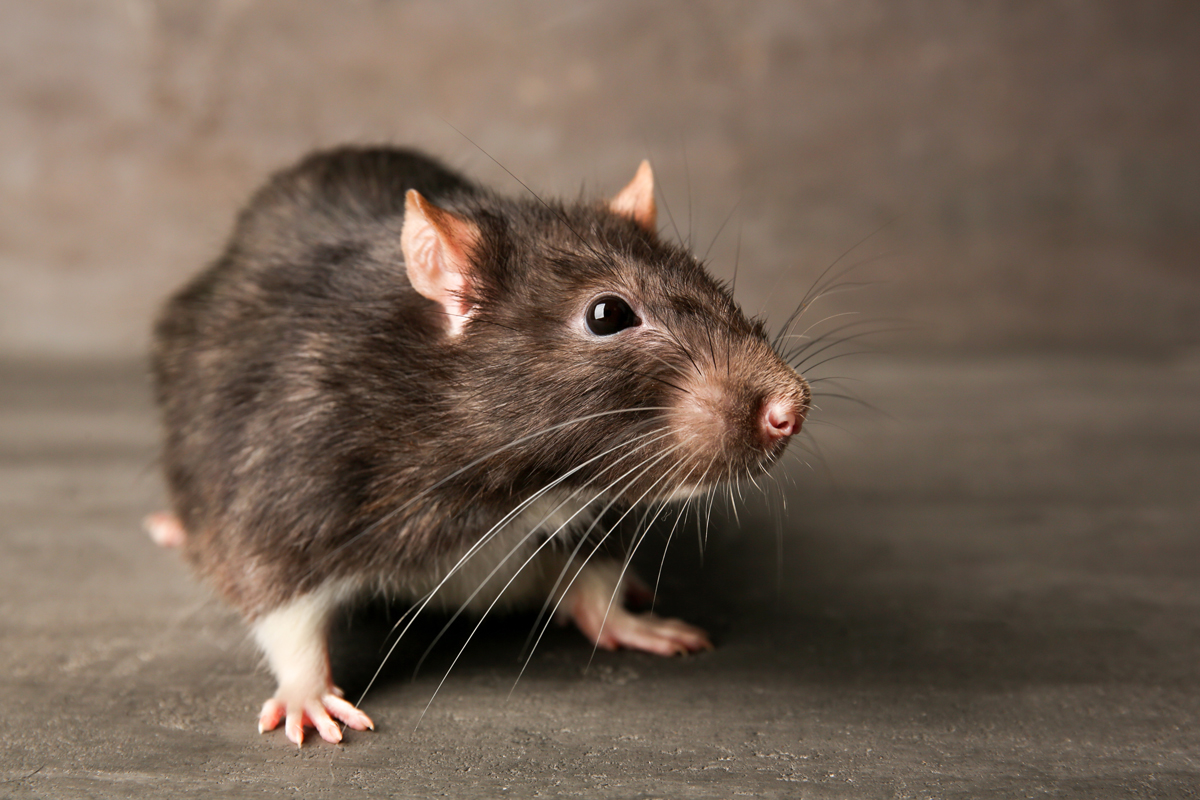As the colder weather arrives, rodents will start to look for ways to get inside a house. But how do you get them out once they settle in? OnTheMarket.com offers top tips.
With winter approaching, it is not only human beings who feel the need to snuggle up in a warm home. Exactly the same instinct is found in rats and mice – which is why the coming of cooler weather tends to be accompanied by a sharp rise in reports of rodents in domestic properties. It is a busy time of year for pest controllers and literally thousands of property-owners are affected or potentially affected by the problem.
Rodents are a particular challenge in rented properties where there is a danger that nothing is done while the landlord and tenant bicker about who is responsible. As a general rule, it is incumbent on the landlord to do everything necessary to keep the property free of vermin. If mice have got into the property through a hole in the skirting-board, for example, or chewed through electrical wires, then the landlord should pay for the necessary repairs, and act promptly to rectify the problem. Tenants are well-advised not just to report problems to the landlord but to do so in writing. This is particularly important at the start of a tenancy when a pre-existing problem can often come to light.
But day-to-day pest control is not all down to the landlord. Tenants who leave food left-overs uncovered, or rubbish bins overflowing, need to keep the property clean enough to deter rodents from treating it like a neighbourhood take-away.
Those affected should also contact their local council to see what pest control services are available. There is a useful page on the government’s website which is a good starting point.
The tell-tale signs of vermin in a property are many and various, from droppings to scurrying noises to the smell of urine. There is no need to panic if you find traces of furry nocturnal visitors.
Always remember that mice or rats will be more scared of you than you are of them. But if you do not take the necessary counter-measures, the vermin will quickly make themselves at home, start families and, in the worst case scenario, do structural damage to your house or create a health hazard.
Here are 10 practical tips for keeping rodents at bay:
1. If you suspect the presence of rats or mice in your property, try to pinpoint where they are hiding. A dusting of flour on the kitchen floor can sometimes reveal tell-tale footprints the following morning.
2. Fill in any holes in skirting boards or in the exterior walls of the property.
3. Keep all food in properly sealed containers whenever possible. And while you are about it, remember that rodents are as attracted to bird feed and pet food as to human food, so avoid leaving any lying about.
4. Always make sure that your outdoor bins have secure lids. Otherwise, the bins will become magnets for the entire local rodent population.
5. Try to minimise the number of “safe spaces” available to rodents by de-cluttering your property and filling in cavities that might appeal to nesting mice.
6. If you have a recurring problem with mice, shop around for mouse-traps that will help in a reasonably humane way – some traps are not for the squeamish. There are special devices which also act as a deterrent by using sound vibration.
7. Poisons can also be effective in controlling domestic vermin. Poisons can be sourced through reputable companies but you should be extremely wary of this option if you have pets or children in your house. Take professional advice here.
8. If it is your neighbour’s property that seems to be the source of the vermin, raise the issue with them in as non-confrontational way as possible. You might also approach their landlord if they are tenants.
9. Familiarise yourself with your legal rights and responsibilities before getting embroiled with others, such as landlords, tenants and council officials. The legal route is a last resort, so try to solve the problem in an amicable way first.
10. Consider what generations of British home-owners have done, generally with excellent results: buy or borrow a cat, which may turn out to be the best deterrent.
Rats and mice proliferate at such a rate that it is a very lucky home-owner who never encounters them at all. But be alert, take all the obvious precautions and the chances are that the rodents will give up your home and move on to pastures new.
See www.onthemarket.com/newandexclusive. Agents specify exclusivity and are committed to accuracy under terms of use.






